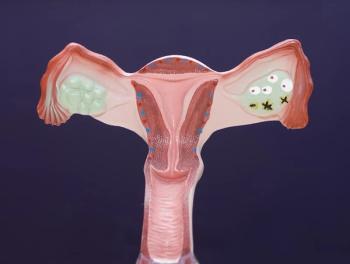
Miami Breast Cancer Conference® Abstracts Supplement
- 40th Annual Miami Breast Cancer Conference® - Abstracts
- Volume 37
- Issue suppl 4
- Pages: 31
37 Open-Label, Phase 2, Multicenter Study of Lasofoxifene (LAS) Combined With Abemaciclib (Abema) for Treating Pre- and Postmenopausal Women With Locally Advanced or Metastatic ER+/HER2− Breast Cancer and an ESR1 Mutation After Progression on Prior Therapies
Background
Estrogen receptor–positive (ER+) metastatic breast cancer (mBC) can develop endocrine therapy resistance through acquired mutations in estrogen receptor 1 (ESR1) that constitutively activate ER. mBC patients with an ESR1 mutation have limited treatment options and a worse prognosis. LAS, a third-generation selective estrogen receptor modulator, had superior efficacy over fulvestrant (fulv) in preclinical breast cancer models expressing ESR1 mutations, which was further enhanced when combined with a cyclin-dependent kinase 4/6 inhibitor (CDK4/6i). Based on these results, a trial of LAS combined with the CDK4/6i abema was initiated in mBC patients with ESR1 mutations (Clinical trial information: NCT04432454). This report provides updates on data that were presented at ASCO 2022.
Materials and Methods
ELAINE 2 is an open-label, phase 2, multicenter clinical trial. Study participants were pre-and postmenopausal women with ER+/HER2– mBC with acquired ESR1 mutation (identified by ctDNA testing), whose disease had progressed on hormonal therapy for metastatic disease with or without a CDK4/6i (including abema). Patients took oral LAS 5 mg/day and Abema 150 mg BID until progression, death, unacceptable toxicity, or withdrawal from the study. The primary end point was safety, and secondary end points were progression-free survival (PFS), objective response rate (ORR), and clinical benefit rate (CBR).
Results
29 patients were enrolled at 16 US sites (Oct 2020 to June 2021). The mean age was 58.3 y (35-79 y); 86% were Caucasian. Most had progressed with at least 2 previous hormonal treatments (80%). All except 1 patient received a prior CDK4/6i and 72% had received prior fulv; 48% had chemotherapy in the metastatic setting. Five patients discontinued the trial due to adverse events (AEs; n = 2), consent withdrawal (n = 2), or investigator withdrawal (n = 1). No deaths occurred during the study and few grade 3/4 AEs were observed. The most common AEs were diarrhea, nausea, and fatigue. Five patients had an abema dose reduction to 100 mg BID. To date, 16 patients have progressed and 8 continue treatment. The censored median PFS was 13 mos (95% CI, 32.0‒NE), the ORR 55.6% (95% CI, 29.0%-71.0%) with 10 confirmed partial responses, and the CBR 69.0% (95% CI, 50.8%-82.7%).
Conclusions
LAS combined with abema in the ELAINE 2 trial was well tolerated and demonstrated robust and meaningful efficacy in women with ER+/HER2– mBC and an ESR1 mutation who had progressed on previous CDK4/6i therapies.
AFFILIATIONS:
David J. Portman,1 Senthil Damodaran,2 Paul V. Plourde,1 Halle C. F. Moore,3 and Ian C. Anderson4
1Sermonix Pharmaceuticals, Columbus, OH.
2MD Anderson Cancer Center, Houston, TX.
3Cleveland Clinic, Cleveland, OH.
4St Joseph Health Medical Group, Santa Rosa, CA.
Articles in this issue
Newsletter
Stay up to date on recent advances in the multidisciplinary approach to cancer.




































